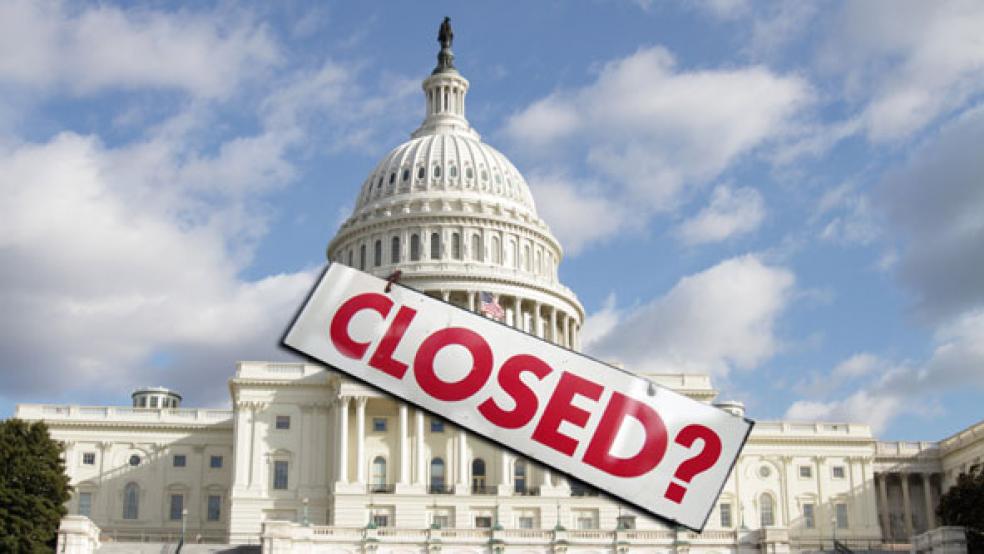It’s a cruel irony that President Obama came into office four and a half years ago promising to “make it cool again” to be a federal employee.
There may have been a time in the distant past when being a federal civil servant was widely considered an honor and economic blessing. But by almost any measure, life in the federal bureaucracy has been anything but cool during the Obama administration.
The 2.7 million civilian federal workforce has remained flat for much of Obama’s tenure and even dropped by 71,000 jobs in the past year, according to the Bureau of Labor Statistics. Federal employees are in the third year of a pay freeze. And nearly half of all federal workers have been forced to take unpaid furlough days this year because of $85 billion automatic budget cuts that were mandated by sequestration.
Even with the salary freeze, government workers are paid well compared with their counterparts in the private sector, according to the Washington Post. The average salary for a full-time, permanent position now stands at nearly $78,500 a year, according to the Office of Personnel Management, an increase of about $1,800 in the last two years. The median salary — the point at which half are above and half are below — is now $74,714, up from $69,550 in 2010.
RELATED: WASHINGTON IN CRISIS AS SHUTDOWN, DEFAULT AWAIT
While many federal employees have received no increases since the last general increase in January 2010, individual raises still can be paid to employees, if eligible, on promotion, for performance, or on completing waiting periods used in grade- and step-type pay systems.
Obama has signaled his desire to end the freeze and raise federal worker pay by one percent in fiscal 2014. But that proposal faces stiff opposition in Congress, which has been reluctant to provide any relief for federal workers. And, in the end, Congress, not the president will decide if civilian employees will see more on their paychecks in the coming year.
Now comes the growing threat of a government shutdown early next week – one that would temporarily toss 800,000 or more federal employees out of work unless the White House and congressional Republicans can reach agreement on a short-term spending measure to keep the government operating beyond the Sept. 30 deadline.
Those hundreds of thousands of “non-essential” workers who may be told to stay home would see their salaries cut off throughout the crisis. And the more than two million other federal workers deemed “essential” who would be ordered to stay on the job would likely suffer interruptions or delay in receiving their salaries.
While there is no law requiring that non-essential employees be compensated if they are ordered to stay home, Congress in the past has voted to reimburse their losses once the shutdowns ended, as was the case after the late 1995 and early 1996 shutdowns during the Clinton administration.
But Lisa Rein of the Washington Post reported on Tuesday that Congress might not be so generous this time around. The bitterly divided Congress includes many lawmakers who are unsympathetic to the plight of federal workers and could be loath to help them recoup their money, Rein reported.
Colleen Kelley, president of the National Treasury Employees Union, told the Post, “I’m concerned when employees who were here remember that last time employees were paid and think it will happen again, because it’s not a given at all.”
9 THINGS YOU MUST KNOW ABOUT A GOVERNMENT SHUTDOWN
Rep. Gerald E. Connolly (D-VA), who represents tens of thousands of federal workers in his district, says, “Unfortunately, the ideology of the House majority is rabidly anti federal-employee. I think it’s going to be very tough sledding to persuade sufficient numbers of them to keep their commitment to federal workers who will find themselves victims.” Connolly added.
For all the complaining by federal workers and their allies, it’s not all bad. Federal workers enjoy long-term job security, and they receive salaries and medical and retirement benefits that stack up pretty well when compared to what they would get in the private sector.
The federal government pays more in average wages and significantly more in benefits than the private sector, according to a Congressional Budget Office analysis. But the advantages mostly accrue to less-educated workers, while compensation for federal employees with professional and doctoral degrees lag significantly behind their private-sector counterparts.
The CBO found that, on average, the federal government pays about 2 percent more in total wages and about 16 percent more when the employer-provided benefits are factored in than workers with similar occupations and backgrounds in the private sector receive.
That may be little consolation for federal workers who – in the face of pay freezes, sequestration, furloughs and now a possible government shutdown – are feeling a bit like congressional piñatas.
Rep. Jason Chaffetz (R-Utah), a Tea Party adherent who voted last Friday with his House GOP colleagues to demand the defunding of Obamacare in exchange for keeping the doors of the government open, told the Post that it’s a shame federal workers are being caught up in this bitter partisan battle that could lead to a shutdown next week.
“I rail against the federal government,” Chaffetz said, “but we have a lot of patriotic federal employees who should not be in the middle of this skirmish.”






